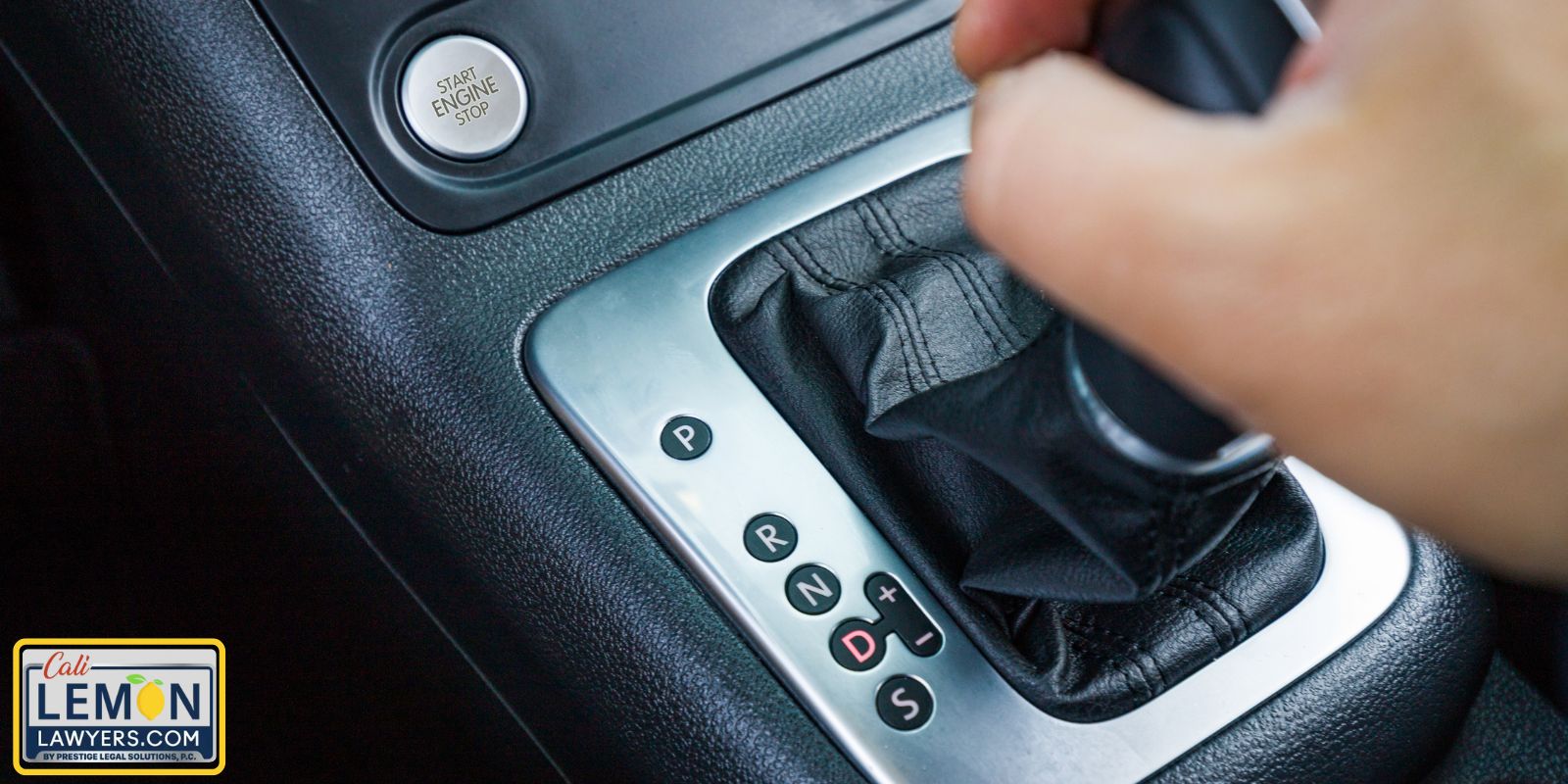
Nissan Sentra Transmission Problems
The Nissan Sentra was introduced in 1982 as a replacement for the B210. Over the years, it has become known as one of the most compact cars available. The 2020 model of the Nissan Sentra received recognition for its quality and reliability, scoring 84 out of 100, according to J.D. Power.
Unfortunately, over time various Nissan Sentra transmission problems have affected Nissan Sentra models and impacted its reputation. In this article, we will explore these problems, complaints, and recalls specifically related to Nissan Sentra transmissions from 2018 until now.
If you’ve purchased or leased a defective 2017-2023 Nissan in California, we can help you receive compensation at no cost to you. Contact Cali Lemon Lawyers today!
From 2018 to 2023 Nissan released a range of Sentra models:
The 2018 Nissan Sentra underwent a refresh with updated styling and additional features. It was available in trim levels such as S, SV, SR, SL, and NISMO. The 2019 Nissan Sentra was carried over from the previous year with updates to its features.
The 2020 Nissan Sentra received a redesign with updated styling and improvements, in its interior and technology features. Continuing with the year’s redesign
The 2021 Sentra featured a sleeker and modern design with the updated features from the previous year.
The 2022 Sentra saw updates and improvements building upon the redesign introduced in 2020. If available the 2023 Sentra would have likely continued with design enhancements and features introduced in previous model years.
Common Issues With The Nissan Sentra’s Transmission (2018- 2023)
Nissan Sentra has faced a range of problems with CVTs (Continuously Variable Transmissions). Although CVTs offer benefits like improved fuel efficiency and smoother driving experiences they have faced challenges and issues over the years.
Here are some of the recurring problems that automakers, including Nissan, have encountered with CVTs:
If you notice a burning smell while driving a Nissan with a CVT transmission it’s likely, due to the transmission fluid overheating. This can potentially harm the transmission and impact its performance. It’s crucial to check and replace the fluid using quality synthetic fluid to prevent overheating.
Shaking or shuddering in Nissan vehicles equipped with CVT transmissions can occur due to worn-out belts or even a clogged filter. Low fluid levels or a faulty torque converter can also contribute to this issue. It’s important to address this problem to avoid any damage to the transmission.
Despite advancements in technology slip of the belt may still occur in this type of gearbox when the driver suddenly accelerates. This can result in shifting, loud noises, and increased fuel consumption.
There may be an unusual sound (like humming or whining) coming from the Nissan vehicle with a CVT transmission. This sound can be caused by factors such as bearings gear issues with the CVT belts or problems with the transmission fluid.
Certain Nissan vehicles equipped with CVTs have been reported to experience breakdowns. These breakdowns can occur due, to factors, including manufacturing defects or insufficient quality control measures.
Nissan Sentra Transmission Recalls (2018-2023)
In 2018, Nissan issued a recall for 2012-2017 Sentra sedans equipped with CVT transmissions. The recall was issued due to a defect that could cause the transmission to fail which could result in a loss of power and increase the risk of a crash.
It’s worth noting that there have been no Nissan Sentra Transmission recalls since 2019 related to issues in their transmissions.
Despite receiving complaints from drivers Nissan has not yet made any statement regarding significant transmission failures or recalls associated with their CVT transmissions.
Nissan seems hesitant to acknowledge the safety concerns that are commonly linked to issues, with their CVT transmissions.
If you would like to check whether your Nissan Sentra has been recalled, you can go to the National Highway Traffic Administration(NHTSA) website with your car’s VIN and check.
Understanding Automotive Transmissions
To put it simply, a vehicle transmission is like its gearbox. Its primary function is to ensure that power is delivered to the car’s wheels at the speed and rate desired by the driver.
Transmissions not only protect the engine from overheating or breaking due to strain but they also convert the combustion power generated by the engine into physical momentum for movement of the car.
Transmission systems also play a role in enabling engines to achieve their speed by setting a cap on the engine’s top velocity.
A typical transmission consists of four to six gear sets and several gear trains that allow drivers to change gears regulating the power delivered to the car without altering the engine running pace.
How do Transmissions Work?
Most conventional transmissions utilize power for shifting gears. They incorporate a torque or fluid coupling converter along with the gearsets to provide the range of gears for the vehicle.
The fluid coupling converter connects the engine to the transmission and utilizes pressurized fluid to transfer power to the gears. This setup replaces the friction clutch and enables the vehicle to come to a stop without stalling. Modern cars employ different types of transmitters aiming at optimizing efficiency and functionality.
Some examples of modern transmitters include ignition transmitters, GPS transmitters, Keyless go system transmitters, Tire Pressure Monitoring System transmitters, and Keyless entry transmitters.
Overview of Nissan Sentra Transmission Types
From 2018, until now Nissan Sentra has featured different transmission options across its range of models. The two primary types have been Continuously Variable Transmission (CVT) and 6-speed manual transmission. Other transmission options offered by the Nissan Sentra include
Selectable Driver Modes that allow you to choose between sport, eco, and normal settings.
Intelligent Shift Mode (ISM) is another option that lets you shift through the set gear ratios.
In the latest Sentra models, CVT technology is integrated with Intelligent Trace Control and Active Ride Control to optimize comfort.
Preventive Measures and Maintenance Tips
There are a few things a Nissan Sentra vehicle owner can do to maintain the Nissan Sentra CVT transmission system and avoid any potential issues. Here are a few tips:
Oil Changes:
It is important to adhere to the recommended oil change intervals provided by the manufacturer to keep your engine running
Check and Change Filters:
Ensure airflow and clean air in the cabin by replacing both the air filter and cabin air filter.
Tire Maintenance:
Regularly inspect tire pressure and ensure you rotate your tires as recommended. It is also important to check your tire is properly inflated tires to enhance fuel efficiency and contribute to safety.
Brake Inspection:
Make it a habit to have your brakes inspected regularly. Replace worn-out brake pads to maintain the right stopping distances.
Fluid Checks:
Regularly check fluids such as coolant, transmission fluid, brake fluid, and power steering fluid topping them off when needed.
Battery Care:
Keep your battery terminals clean. If you notice signs of weakness in your battery’s performance it may be time for a replacement.
Inspect the Belts:
To keep your vehicle in good condition, make sure to inspect the belts and hoses for any signs of wear and replace them if necessary.
Check for leaks:
It’s important to maintain the cooling system by checking for leaks and ensuring that the coolant is at the recommended level.
Regularly Inspect the Exhaust:
It’s essential to inspect the exhaust system for any leaks or damage to prevent any fumes from leaking into the cabin.
Periodically checking the alignment and suspension components will help you maintain handling and prevent tire wear.
Another important aspect is ensuring that all lights, including headlights, taillights, and turn signals, function correctly.
Remember to follow your vehicle’s recommended maintenance schedule as outlined in the owner’s manual. This will help you stay on top of maintenance tasks.
Lastly, practicing driving habits such as avoiding acceleration or braking can contribute to better overall vehicle health. Harsh driving can lead to wear and decreased fuel efficiency.
How to Address Nissan Sentra Transmission Problems
When it comes to the Nissan Sentra transmission, always attention to your transmitter. If you notice any symptoms such as engine problems or transmission failure, like shifting, delayed or harsh gear changes, slipping gears, or strange noises Here are some of the recommended steps you should take.
Checking Fluid Levels:
Make sure that your transmission fluid is at the right level to prevent your fuel pump from being burnt or discolored. Insufficient or contaminated transmission fluid can cause problems.
Changing Transmission Fluid:
If your transmission fluid is old or contaminated it might be a good idea to consider getting it changed. This often fixes most transmission issues.
Perform a Diagnostic Scan:
Use an OBD II scanner to check for any error codes in the vehicle’s computer system. Error codes related to the transmission can provide information about the steps to take in addressing potential problems.
Referring to the Owners Manual:
Consult your Nissan Sentra’s owner’s manual for troubleshooting tips and guidance on how to deal with issues.
Seek Professional Inspection:
If you are unable to identify or resolve the problem on your own it is advisable to take your vehicle to a mechanic or a reputable Nissan dealership for an inspection and diagnosis.
Considering Warranty Coverage:
If your Nissan Sentra’s transmission is still under warranty it would be wise to consult with your dealership and check if the transmission issue falls under extended warranty coverage. Warranty coverage can help offset repair costs.
Transmission Repair or Replacement:
Depending on the severity of the transmission problem itself it may be necessary to have your transmission repaired or replaced.
Is it expensive to fix Nissan Sentra Transmission Problems?
The cost of fixing a Nissan CVT transmission varies based on the problem that the Nissan CVT transmission might have.
If you have to replace the entire CVT transmission, it might cost you between $3,000 – $8,000. Typically, car insurance might not cover the replacement cost unless the damage to the CVT transmission was caused by an event covered by the car insurance policy.
Other transmission problems that might not warrant the replacement of the CVT transmission will cost less to fix. For instance, to repair a transmission leak will cost anything between $200 – $500.
A qualified technician or authorized dealer has the expertise to determine the course of action. It is advisable to ensure you consult a qualified technician for a proper diagnosis.
Having those sums in mind, it might be worth your while to File a Lemon Law Claim.
Summary
In summary, the Nissan Sentra has been a liked car, for many years due to its affordability, dependability, fuel efficiency, and compact design. However, like any vehicle, the Nissan Sentra has encountered transmission issues over time with its Continuously Variable Transmission (CVT) system.
Despite these challenges, Nissan has taken steps to improve its transmission systems by incorporating features like Intelligent Trace Control and Active Ride Control with CVT. These enhancements are aimed at optimizing driving comfort.
It’s important to note that there have been recalls related to the transmission system of the Nissan Sentra. Many owners still choose the Nissan Sentra as it provides an option in the compact car segment. However, both current owners and potential buyers should be aware of transmission problems and recurring issues associated with certain model years along with any related recalls.
To learn more about Common Vehicle Manufacturers with Defects.
If you have purchased or leased a Nissan Sentra with signs of a bad transmission, we can help you receive compensation at no cost to you. Contact Cali Lemon Lawyers today!





